
The Hidden Gem of St. Peter in Jersey
St. Peter in Jersey is a quaint and charming parish located on the island of Jersey, one of the Channel Islands situated between England and France. Known for its serene countryside, historic sites, and friendly locals, St. Peter offers a peaceful retreat from the hustle and bustle of modern life. Its lush landscapes and picturesque villages make it an ideal destination for nature lovers and history enthusiasts alike. The parish is home to several notable landmarks, including the ancient St. Peter's Church, which dates back to the 11th century. Visitors can explore the church's stunning architecture and serene churchyard, which provides a glimpse into the island's rich history. Just a short drive away, you'll find the Jersey War Tunnels, an underground complex that offers a poignant look at the island's experience during World War II. St. Peter also boasts beautiful coastal views, with several walking trails that lead to scenic vistas and hidden beaches. For those interested in local culture, the parish hosts various events and festivals throughout the year, showcasing traditional music, dance, and cuisine. Whether you're looking to relax in nature, delve into history, or experience local culture, St. Peter in Jersey has something to offer every traveler.
Local tips in St. Peter
- Rent a bike to explore the scenic countryside and coastal trails at your own pace.
- Visit St. Peter's Church early in the morning to avoid crowds and enjoy a peaceful experience.
- Check out the local markets for fresh produce and unique handmade crafts.
- Attend one of the parish's festivals to immerse yourself in traditional Jersey culture.
- Pack a picnic and enjoy a meal at one of the many scenic spots along the coastline.
The Hidden Gem of St. Peter in Jersey
St. Peter in Jersey is a quaint and charming parish located on the island of Jersey, one of the Channel Islands situated between England and France. Known for its serene countryside, historic sites, and friendly locals, St. Peter offers a peaceful retreat from the hustle and bustle of modern life. Its lush landscapes and picturesque villages make it an ideal destination for nature lovers and history enthusiasts alike. The parish is home to several notable landmarks, including the ancient St. Peter's Church, which dates back to the 11th century. Visitors can explore the church's stunning architecture and serene churchyard, which provides a glimpse into the island's rich history. Just a short drive away, you'll find the Jersey War Tunnels, an underground complex that offers a poignant look at the island's experience during World War II. St. Peter also boasts beautiful coastal views, with several walking trails that lead to scenic vistas and hidden beaches. For those interested in local culture, the parish hosts various events and festivals throughout the year, showcasing traditional music, dance, and cuisine. Whether you're looking to relax in nature, delve into history, or experience local culture, St. Peter in Jersey has something to offer every traveler.
When is the best time to go to St. Peter?
Iconic landmarks you can’t miss
Jersey War Tunnels
Experience the profound history of Jersey during WWII at the Jersey War Tunnels, where stories of resilience and courage come alive in a unique historical setting.
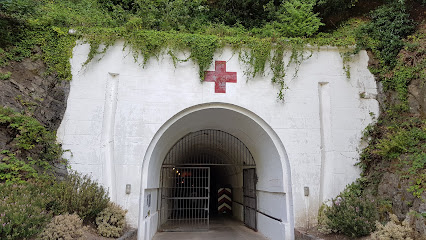
Mont Orgueil Castle
Discover the rich history and breathtaking views at Mont Orgueil Castle, a stunning medieval fortress in the heart of Jersey.

Elizabeth Castle
Experience the rich history and stunning views at Elizabeth Castle, a remarkable historical landmark in Jersey's St Aubin’s Bay.

La Hougue Bie Museum
Experience the rich history of Jersey at La Hougue Bie Museum, where ancient artifacts and captivating exhibits come together in a stunning setting.
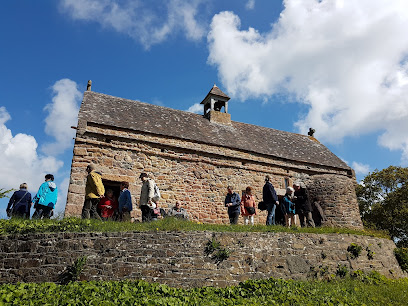
Grosnez Castle
Explore Grosnez Castle: A historic gem perched on Jersey's cliffs, offering stunning views and a glimpse into medieval history.

Hamptonne Country Life Museum
Explore the enchanting Hamptonne Country Life Museum, where Jersey's rich agricultural heritage comes to life through engaging exhibits and beautiful landscapes.
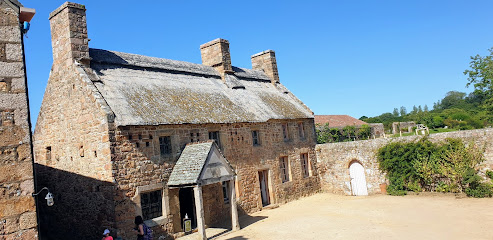
aMaizin! Adventure Park
Unleash your inner adventurer at aMaizin! Adventure Park, Jersey's ultimate family-friendly destination for fun and exploration.
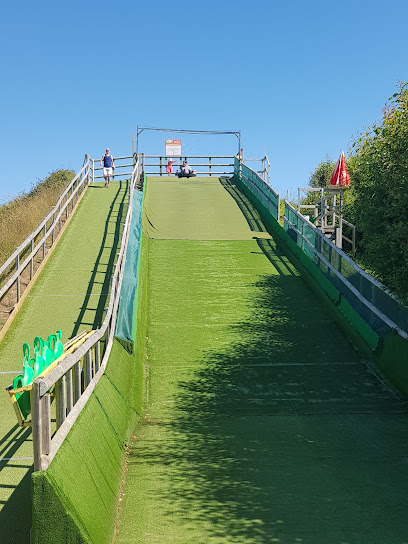
St Matthew's Church
Explore the rich history and stunning architecture of St Matthew's Church in Jersey, a serene landmark filled with cultural significance.
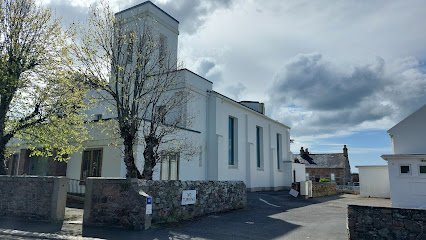
Liberation Square
Explore Liberation Square, a historical landmark in Saint Helier, Jersey, celebrating freedom and resilience with stunning sculptures and serene landscapes.
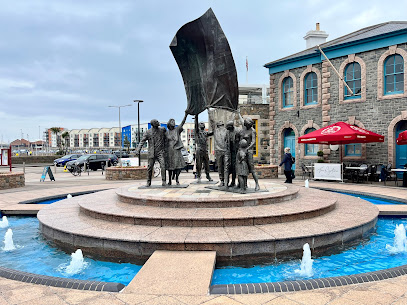
Jersey Lavender Ltd
Discover the enchanting Jersey Lavender Ltd, a serene escape featuring fragrant fields, a delightful café, and unique lavender products on the beautiful island of Jersey.

Channel Islands Military Museum
Delve into the military history of the Channel Islands at this fascinating museum in St Ouen, showcasing artifacts from World War II and more.
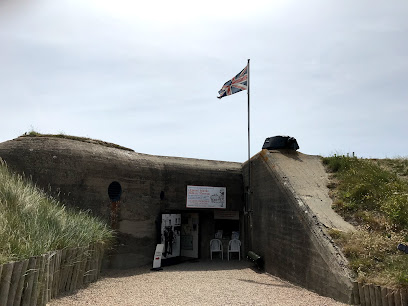
Sorel Point
Experience the breathtaking coastal beauty of Sorel Point in Jersey, a serene scenic spot perfect for nature lovers and photography enthusiasts.

Battery Moltke
Explore the rich military history of Jersey at Battery Moltke, a stunning historical landmark with breathtaking views and fascinating stories.

16 New Street
Explore the captivating history of Jersey at 16 New Street, a fascinating tourist attraction and history museum in the heart of St. Helier.
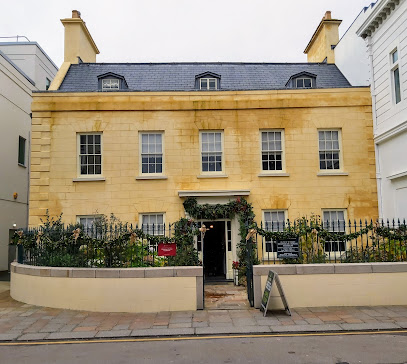
Battery Lothringen
Explore Battery Lothringen, a historical gem in Jersey, where history meets breathtaking coastal views for an unforgettable experience.
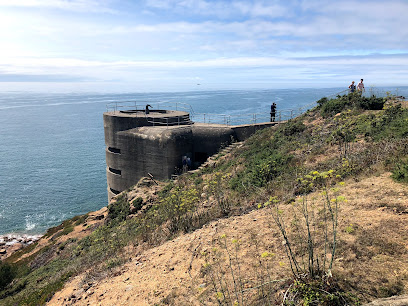
Unmissable attractions to see
Jersey War Tunnels
Discover the impactful history of Jersey during World War II at the Jersey War Tunnels, an essential stop for history enthusiasts and curious travelers.
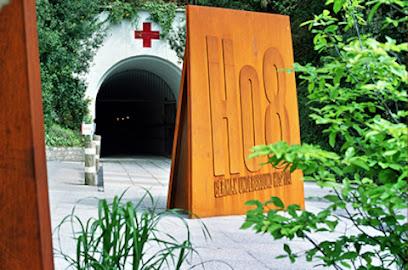
Mont Orgueil Castle
Explore the rich history and stunning views at Mont Orgueil Castle, a majestic fortress in Jersey's picturesque Gorey village.
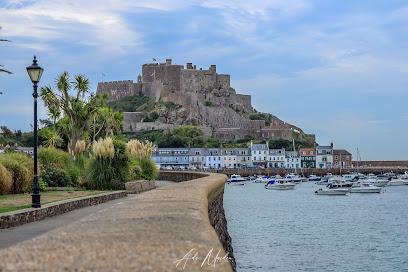
St Brelade's Bay
Experience the sun-kissed shores and vibrant atmosphere of St Brelade's Bay, Jersey's premier beach destination for relaxation and adventure.
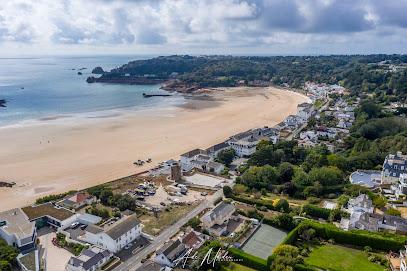
Jersey Pearl
Explore the charm of Jersey Pearl, a unique blend of cultural heritage, artisanal jewelry, and stunning coastal views in the heart of Jersey.
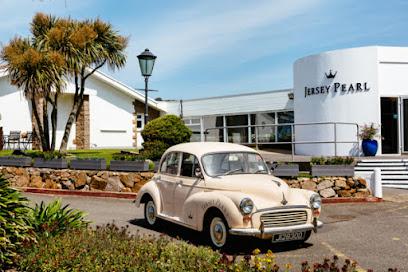
Les Jardins de la Mer
Explore the breathtaking Les Jardins de la Mer, a beautiful garden oasis in St Helier, Jersey, offering stunning views and vibrant flora.
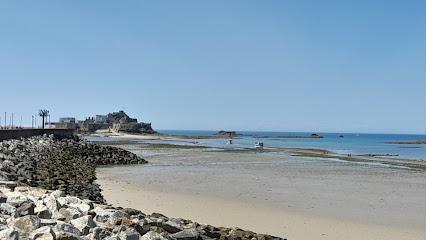
Maritime Museum & Occupation Tapestry Gallery
Explore Jersey's maritime history and the compelling stories of resilience at the Maritime Museum & Occupation Tapestry Gallery in St Helier.
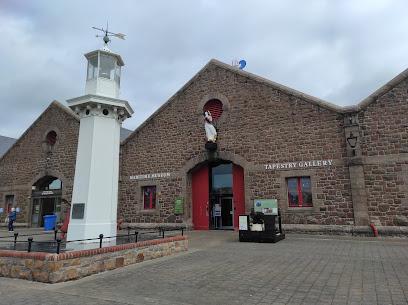
La Hougue Bie Museum
Explore the depths of Jersey’s past at La Hougue Bie Museum, featuring prehistoric artifacts and engaging exhibits in a serene setting.

Jersey Museum, Art Gallery and Victorian House
Explore the vibrant heritage of Jersey at the Jersey Museum, featuring art galleries, historical exhibits, and Victorian elegance.
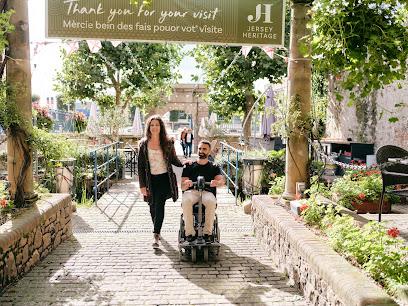
Grosnez Castle
Explore the enchanting Grosnez Castle in Jersey, a historical gem with stunning coastal views and a rich heritage waiting to be discovered.
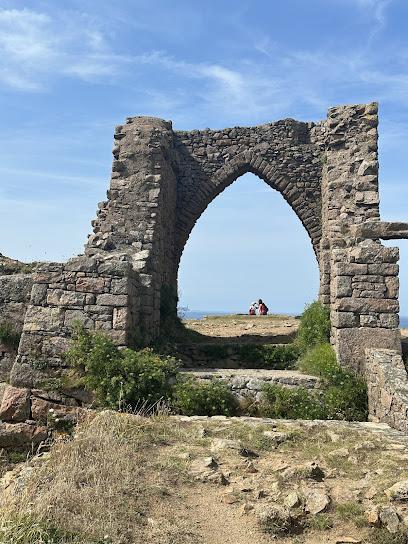
Hamptonne Country Life Museum
Explore Jersey's past at Hamptonne Country Life Museum, where history comes alive through engaging exhibits and beautiful gardens.
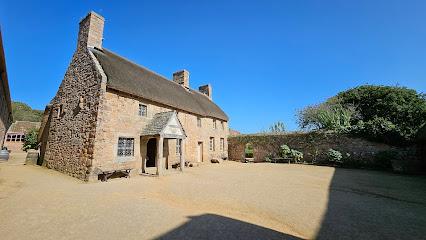
Beauport Beach
Discover the serene beauty of Beauport Beach in Jersey, a perfect destination for relaxation, adventure, and breathtaking coastal views.
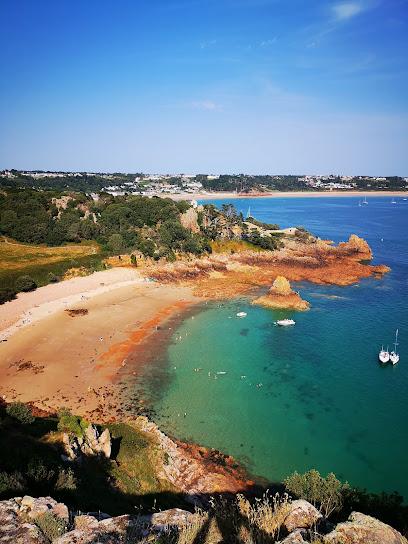
Jersey Harbours
Experience the charm of Jersey Harbours, where maritime heritage meets stunning coastal beauty in St Helier, Jersey.
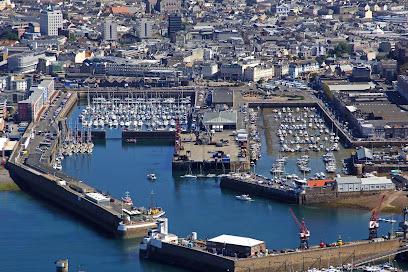
St Aubin's Harbour
Discover the charm of St Aubin's Harbour in Jersey, where scenic views, delicious seafood, and vibrant culture await every traveler.
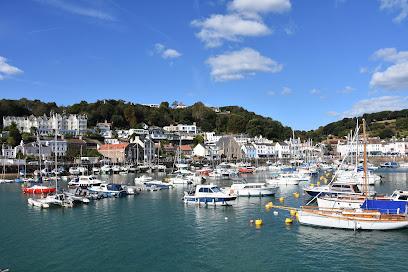
Saint Helier beach
Experience the enchanting allure of Saint Helier Beach, a stunning coastal retreat offering relaxation, water sports, and local culture in Jersey.

St Brelade
Experience the tranquil charm of St Brelade, Jersey, where stunning beaches meet rich history and vibrant local culture.

Essential places to dine
El Tico
Discover El Tico in Jersey: A seaside restaurant offering delectable local dishes with stunning ocean views for an unforgettable dining experience.
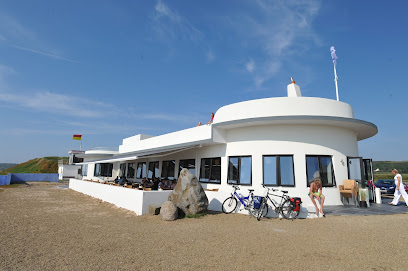
Bella Italia - Jersey
Discover the flavors of Italy at Bella Italia in St. Helier—where authentic cuisine meets warm hospitality amidst stunning surroundings.
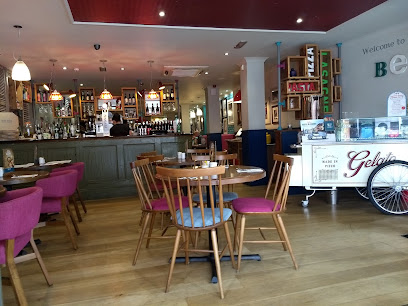
The Boat House
Discover the delightful fusion of traditional cuisine and stunning harbor views at The Boat House in St. Aubin.
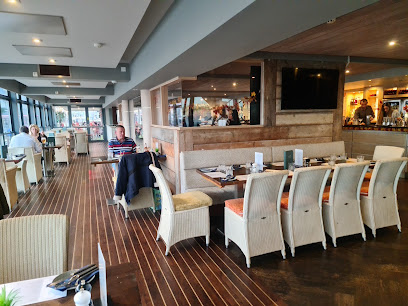
Wild Fire
Experience the authentic taste of Spain at Wild Fire in St Helier - where every dish tells a story.
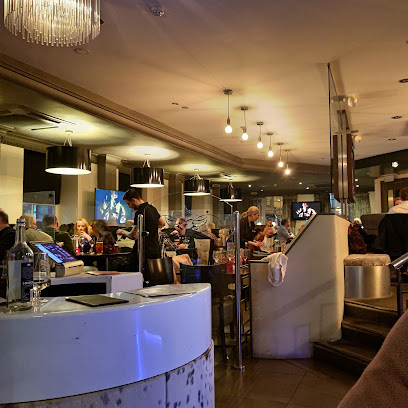
Quayside Bistro & Grill
Experience fresh seafood and stunning harbor views at Quayside Bistro & Grill in St Helier, where every meal is a taste of Jersey's maritime heritage.
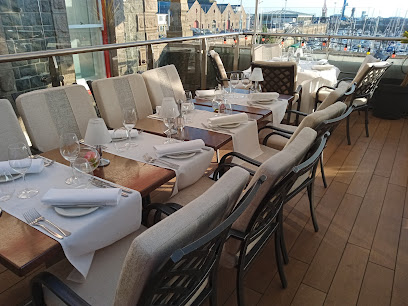
Watersplash Beach Bar & Diner
Experience exquisite dining with breathtaking ocean views at Watersplash Beach Bar & Diner in Jersey.
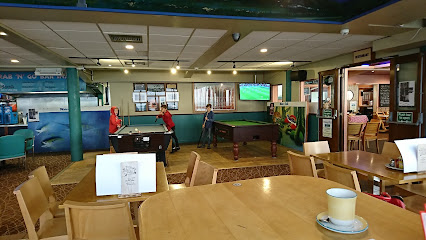
The Old Court House
Experience exceptional dining at The Old Court House - where history meets gourmet cuisine in scenic St Aubin, Jersey.
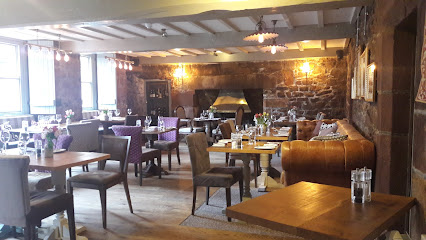
Le Braye Cafe
Discover delicious seafood and stunning ocean views at Le Braye Cafe in Jersey – a must-visit culinary destination.
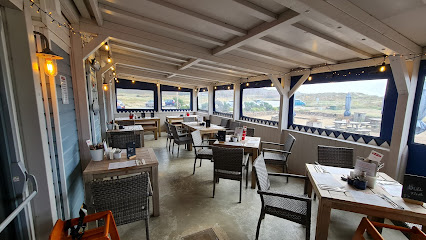
The Lookout Beach Cafe & Restaurant
Experience exquisite dining with breathtaking ocean views at The Lookout Beach Cafe & Restaurant in Jersey.
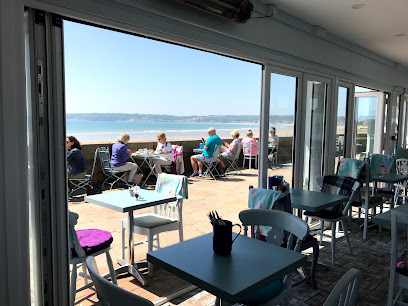
Mark Jordan at the Beach
Discover exquisite British seafood dining at Mark Jordan at the Beach in Jersey, where stunning ocean views meet culinary excellence.
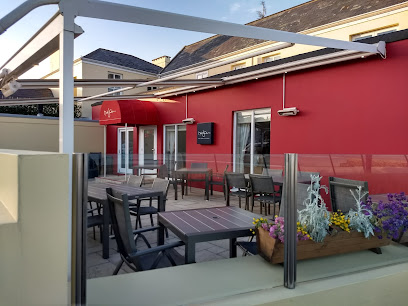
St. Mary’s Pub & Dining
Discover authentic British cuisine at St. Mary's Pub & Dining in Jersey - where tradition meets local flavors in a charming setting.
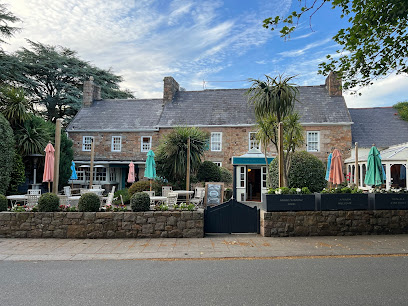
Oyster Box
Experience exquisite seafood dining at Oyster Box in St Brelade's Bay – where fresh flavors meet stunning coastal views.
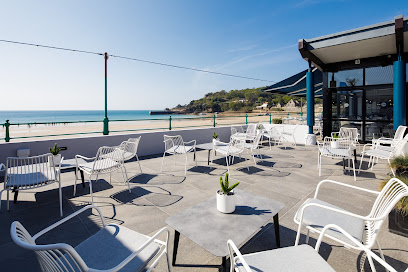
Mano's Bistro
Experience exquisite continental cuisine at Mano's Bistro in St Helier - where every meal is a celebration of flavor.
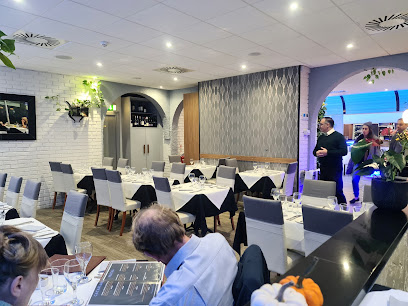
The Salty Dog - Cafe, Bar & Bistro
Experience gourmet dining at The Salty Dog Bistro in Jersey - where fresh ingredients meet stunning coastal views for an unforgettable meal.
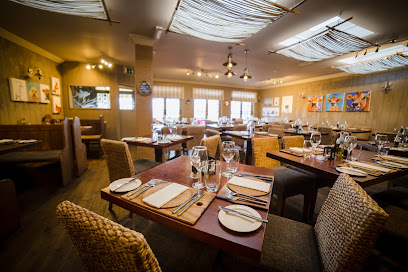
Bohemia Bar & Restaurant
Experience exquisite fine dining at Bohemia Bar & Restaurant in St Helier - where culinary artistry meets vibrant cocktails in a sophisticated setting.
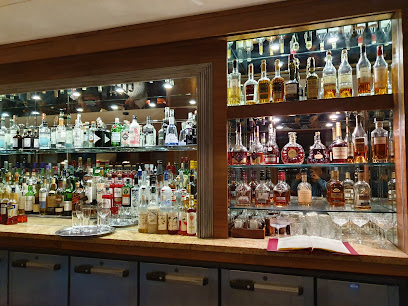
Markets, malls and hidden boutiques
St Peter's Garden Centre
Explore the beauty of nature at St Peter's Garden Centre in Jersey, featuring a wide variety of plants, gardening tools, and charming gift items.
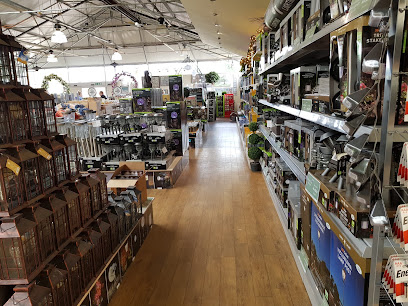
CI Co-op Grand Marché
Discover the flavors of Jersey at CI Co-op Grand Marché, where local produce meets gourmet delights in a vibrant supermarket setting.

Coop En Route Petrol St Peter
Explore Jersey with ease at Coop En Route Petrol St Peter, your go-to supermarket for fresh produce and essential supplies on the island.
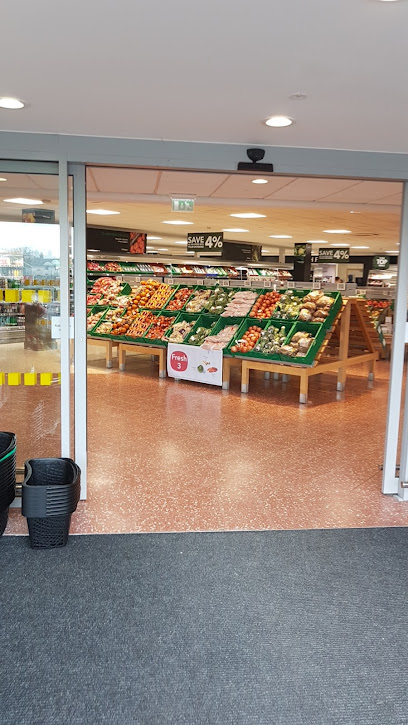
Iceland Supermarket St. Peter
Explore Iceland Supermarket St. Peter in Jersey for an extensive selection of frozen foods, local delicacies, and a unique shopping experience.

M&S Simply Food
Explore Jersey's culinary delights at M&S Simply Food, your go-to supermarket for fresh produce and gourmet snacks.
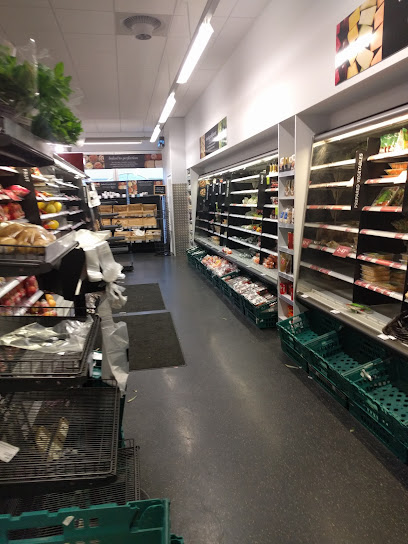
Coop Bikes
Discover cycling in Jersey at Coop Bikes, your one-stop shop for bicycle sales, repairs, and outdoor sports gear, perfect for every adventure.

The Little Shop
Explore The Little Shop in St Helier for unique gifts and toys that capture the spirit of Jersey. A must-visit for every tourist!
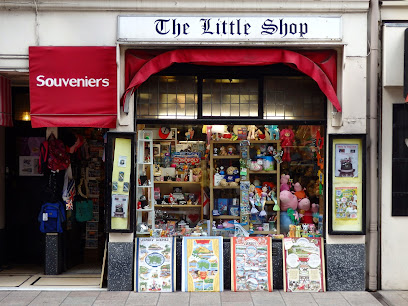
St. Lawrence Stores
Experience local flavors and unique finds at St. Lawrence Stores, the charming general store in Jersey, perfect for every tourist's shopping spree.
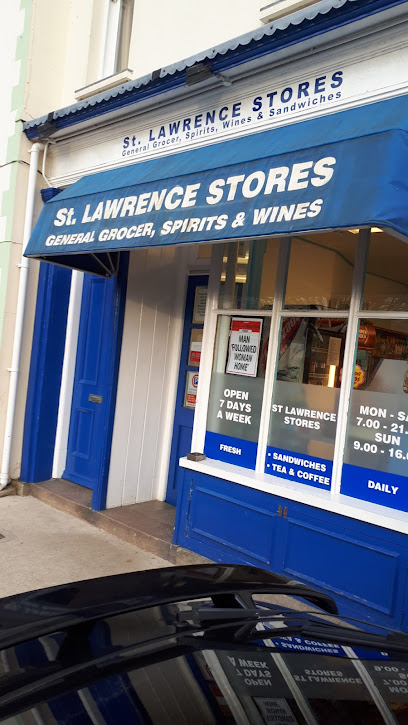
Amélie Homeware
Discover unique gifts and home décor at Amélie Homeware in St. Helier, Jersey - a haven for personalized treasures and local artistry.
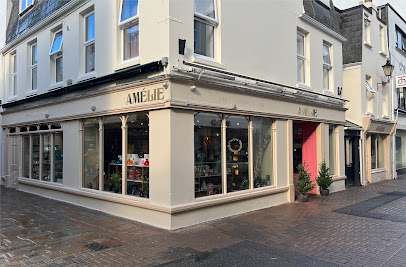
K9 Wellness Centre
Discover the K9 Wellness Centre in St Peter, Jersey, where pet care meets quality products for your furry friends.

Boots
Discover Boots in Jersey, your one-stop shop for unique gifts, beauty products, and essentials for every occasion in a charming setting.

Stephen Cohu Antiques
Uncover unique antiques and collectibles at Stephen Cohu Antiques in Jersey, where history and craftsmanship meet in a charming store.
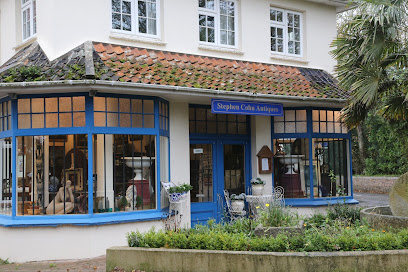
Maison De Jersey
Explore Maison De Jersey: Your ultimate destination for unique souvenirs and corporate gifts that embody the spirit of the island.

Mother Earth
Explore Mother Earth, a unique gift shop in St Helier, Jersey, offering exquisite local crafts and souvenirs.
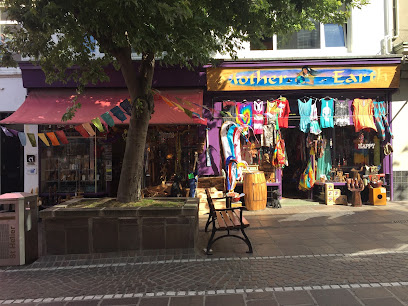
Made By Mums
Explore Made By Mums, Jersey's charming craft store offering unique handmade creations and local artistry for an unforgettable souvenir experience.

Essential bars & hidden hideouts
The Tenby - Randalls Pubs
Discover The Tenby in St Aubin, a vibrant pub and restaurant offering local flavors, stunning views, and a warm atmosphere that invites relaxation.
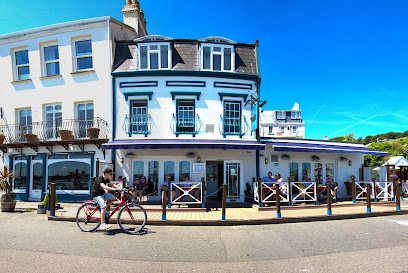
Blue Note Bar
Experience the best live music and vibrant nightlife at Blue Note Bar in St Helier, Jersey, where every night is a celebration.
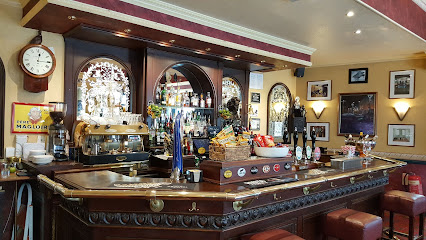
St. Mary’s Pub & Dining
Experience the charm and flavor of British cuisine at St. Mary’s Pub & Dining, a local favorite in Jersey’s picturesque landscape.
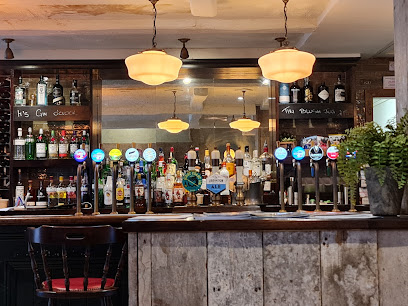
The Goose - Randalls Pubs
Experience the warmth of Jersey at The Goose, a charming bar and restaurant offering delicious local cuisine and a vibrant atmosphere.
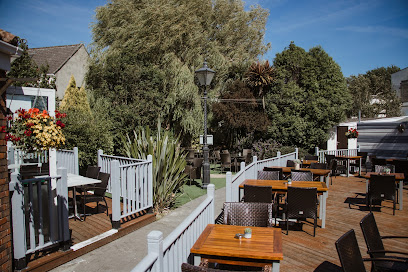
The Tipsy
Discover the culinary delights of The Tipsy, Jersey's inviting restaurant that serves fresh, locally sourced dishes in a cozy atmosphere.
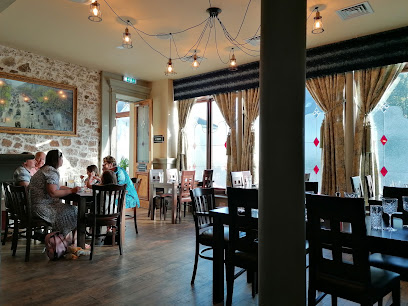
The Sir George Carteret - Randalls Pubs
Experience local charm at The Sir George Carteret, a cozy bar and inn in Jersey, perfect for dining and relaxation.
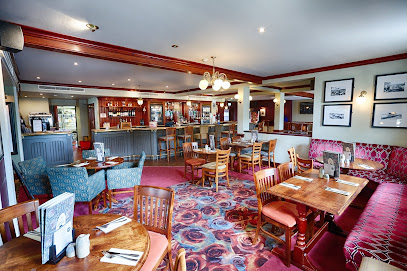
The Peirson
Experience the vibrant atmosphere and exquisite drinks at The Peirson, a must-visit bar in the heart of St Helier, Jersey.
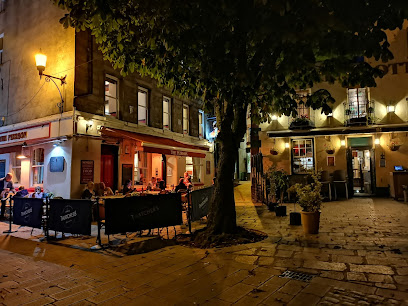
Rocco's Restaurant & Bar
Experience exquisite dining at Rocco's Restaurant & Bar, nestled in the scenic Les Mielles Golf & Country Club, St. Peter, Jersey.
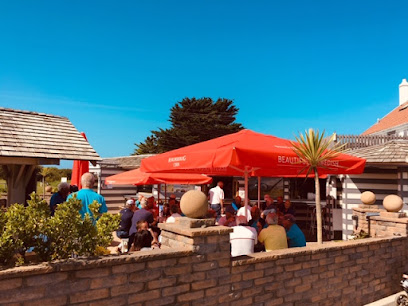
The Trafalgar Inn - Live Music and Sports Pub in St Aubin, Jersey
Experience the heart of St Aubin at The Trafalgar Inn, where live music and sports create an unforgettable pub atmosphere.
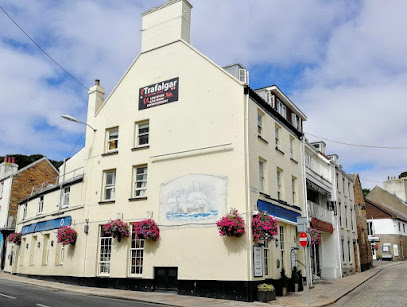
Vittoria
Experience the vibrant nightlife at Vittoria, Jersey’s favorite bar, offering a lively atmosphere, delicious drinks, and a youthful crowd.
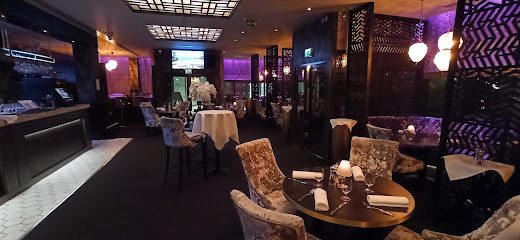
St James
Experience the vibrant nightlife at St. James, a premier wine bar and night club in St Helier, Jersey, perfect for socializing and entertainment.
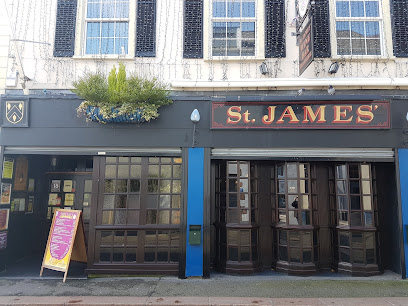
The Daily Globe Wine Bar & Eaterie
Discover the best of Jersey's culinary scene at The Daily Globe Wine Bar & Eaterie, where exquisite wines meet delicious pub fare in a cozy setting.
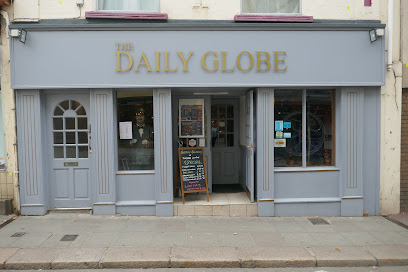
Horse & Hound
Discover the local flavors and vibrant atmosphere at Horse & Hound Pub in Jersey, where every visit is a taste of island life.
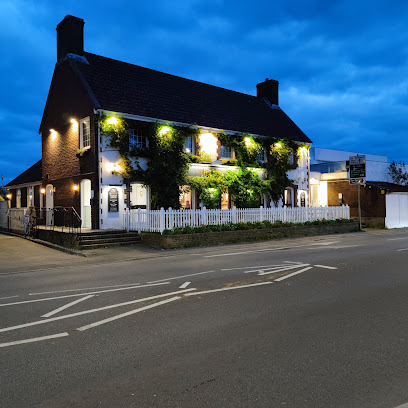
The Kings Bar
Experience the vibrant atmosphere and diverse drink selection at The Kings Bar, a must-visit in St Helier, Jersey.
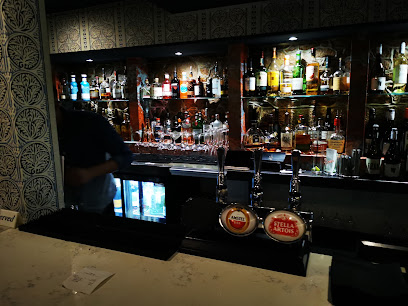
Local Phrases
-
- HelloBonjour
[bon-zhoor] - GoodbyeAu revoir
[oh reh-vwar] - YesOui
[wee] - NoNon
[nohn] - Please/You're welcomeS'il vous plaît/De rien
[seel voo pleh/dee ryen] - Thank youMerci
[mehr-see] - Excuse me/SorryExcusez-moi/Désolé
[ex-kew-zay mwah/day-zoh-lay] - How are you?Comment ça va?
[koh-mohn sah vah] - Fine. And you?Bien. Et toi?
[byen. ay twah] - Do you speak English?Parlez-vous anglais?
[par-lay voo ahn-glay] - I don't understandJe ne comprends pas
[zhuh nuh kohm-prahn pah]
- HelloBonjour
-
- I'd like to see the menu, pleaseJe voudrais voir le menu, s'il vous plaît
[zhuh voo-dray vwahr luh meh-nyoo, seel voo pleh] - I don't eat meatJe ne mange pas de viande
[zhuh nuh mahnj pah duh vyand] - Cheers!Santé!
[sahn-tay] - I would like to pay, pleaseJe voudrais payer, s'il vous plaît
[zhuh voo-dray pay-ay, seel voo pleh]
- I'd like to see the menu, pleaseJe voudrais voir le menu, s'il vous plaît
-
- Help!Au secours!
[oh seh-coor] - Go away!Allez-vous en!
[ah-lay vooz ahn] - Call the Police!Appelez la police!
[ah-pell-ay lah poh-lees] - Call a doctor!Appelez un médecin!
[ah-pell-ay uh meh-deh-sahn] - I'm lostJe suis perdu
[zhuh swee pair-doo] - I'm illJe suis malade
[zhuh swee mah-lahd]
- Help!Au secours!
-
- I'd like to buy...Je voudrais acheter...
[zhuh voo-dray zah-shay...] - I'm just lookingJe regarde juste
[zhuh ruh-gahrd zhewst] - How much is it?Combien ça coûte?
[kohm-byen sah koot] - That's too expensiveC'est trop cher
[say troh shay] - Can you lower the price?Pouvez-vous baisser le prix?
[poo-veh voo bess-ay luh pree]
- I'd like to buy...Je voudrais acheter...
-
- What time is it?Quelle heure est-il?
[kel uhr ay eel] - It's one o'clockIl est une heure
[eel ay oon uhr] - Half past (10)Dix et demie
[dees ay duh-mee] - MorningMatin
[mah-tahn] - AfternoonAprès-midi
[ah-pray mee-dee] - EveningSoir
[swahr] - YesterdayHier
[ee-air] - TodayAujourd'hui
[oh-zhoor-dwee] - TomorrowDemain
[duh-mahn] - 1Un
[uhn] - 2Deux
[duh] - 3Trois
[twah] - 4Quatre
[kat-ruh] - 5Cinq
[sank] - 6Six
[sees] - 7Sept
[sept] - 8Huit
[wheet] - 9Neuf
[nuff] - 10Dix
[dees]
- What time is it?Quelle heure est-il?
-
- Where's a/the...?Où est le/la...?
[oo ay luh/lah] - What's the address?Quelle est l'adresse?
[kel ay la-dress] - Can you show me (on the map)?Pouvez-vous me montrer (sur la carte)?
[poo-veh voo muh mohn-tray (soor lah kart)] - When's the next (bus)?Quand est le prochain (bus)?
[kahn ay luh proh-shahn (bus)] - A ticket (to ....)Un billet (pour ....)
[uhn bee-yay (poor ....)]
- Where's a/the...?Où est le/la...?
History of St. Peter
-
St. Peter, a parish in the Channel Island of Jersey, boasts a rich history dating back to the Neolithic period. Archaeological evidence suggests that the area was settled as early as 4,000 BC. Ancient burial sites and standing stones, such as La Table des Marthes, provide glimpses into the prehistoric life of the region.
-
During the Medieval period, St. Peter came under the influence of the Normans. The parish church of St. Peter, which dates back to the 12th century, stands as a testament to this era. The church, with its distinctive Norman architecture, remains a focal point in the community, reflecting both religious and cultural influences of the time.
-
In 1781, the Battle of Jersey, a critical conflict during the American Revolutionary War, saw French forces attempt to invade Jersey. Though the battle predominantly took place in St. Helier, St. Peter’s strategic location meant it was heavily fortified. The remnants of coastal fortifications and watchtowers from this period can still be seen along the parish’s coastline.
-
St. Peter, like the rest of Jersey, was occupied by German forces during World War II from 1940 to 1945. Evidence of this period is preserved in the numerous bunkers and fortifications scattered across the parish. The occupation had a profound impact on local life, altering the social and economic landscape of St. Peter.
-
After World War II, St. Peter underwent significant development. The expansion of Jersey Airport in the parish has played a crucial role in transforming it into a modern gateway for international travelers. Despite modernization, St. Peter has managed to retain its historical charm, with preserved landmarks and traditional architecture providing a glimpse into its storied past.
-
St. Peter is not only rich in history but also in cultural heritage. The parish celebrates various local festivals and events throughout the year, such as La Fête dé Noué (Christmas Festival) and La Fête dé St. Pierre (St. Peter’s Day). These events highlight the community spirit and the preservation of traditional customs, contributing to the vibrant cultural tapestry of the area.
St. Peter Essentials
-
St. Peter is located in the western part of Jersey, one of the Channel Islands. The primary access point is Jersey Airport (JER), which is just a short drive from St. Peter. The airport has direct flights from various European cities, including London, Paris, and Amsterdam. From the airport, you can take a taxi, rent a car, or use local bus services to reach St. Peter.
-
St. Peter offers a variety of transportation options. The local bus service is reliable and connects St. Peter with other parts of the island. Taxis are also readily available and can be hailed on the street or booked in advance. Car rentals are popular for those who want to explore Jersey at their own pace. Cycling is another great way to get around, with several bike rental shops available.
-
The official currency in Jersey is the British Pound Sterling (GBP). Major credit and debit cards are widely accepted in hotels, restaurants, and shops. ATMs are plentiful, but it's advisable to carry some cash for smaller establishments that might not accept cards. Currency exchange services are available at the airport and in major towns.
-
St. Peter is generally a safe destination for tourists. However, as with any travel destination, it's important to stay vigilant. Avoid walking alone at night in poorly lit areas and keep an eye on your belongings in crowded places. There are no specific high-crime areas targeting tourists, but it's always best to stay aware of your surroundings.
-
In case of emergency, dial 999 for immediate assistance. St. Peter has a local police station and medical facilities. It's recommended to have travel insurance that covers medical emergencies. Pharmacies are available for minor health issues, offering over-the-counter medications. Familiarize yourself with the location of the nearest hospital or clinic.
-
Fashion: Do dress smart-casual when dining out or visiting more formal establishments. Avoid overly casual attire in such settings. Religion: Do respect local customs and traditions, especially when visiting churches or religious sites. Public Transport: Do have exact change for bus fares or use a contactless payment method. Don’t eat or drink on public transport. Greetings: Do greet people with a friendly 'hello' or 'hi'; a handshake is also common in more formal settings. Eating & Drinking: Do try local specialties like Jersey Royal potatoes and seafood. Don't leave a large tip, as service charges are often included in the bill.
-
To experience St. Peter like a local, visit the local markets for fresh produce and handmade goods. Engage with the residents, who are known for their friendly and welcoming nature. Explore the coastal paths for breathtaking views and enjoy a traditional afternoon tea at one of the local cafes. For a unique experience, visit during the Battle of Flowers festival, one of Jersey's most famous events.
Trending Landmark in St. Peter
Nearby Cities to St. Peter
-
Things To Do in St. Brelade
-
Things To Do in St. Aubin
-
Things To Do in St. Lawrence
-
Things To Do in St. Ouen
-
Things To Do in St. Helier
-
Things To Do in Trinity
-
Things To Do in St. Clement
-
Things To Do in Gorey
-
Things To Do in St. Anne
-
Things To Do in St. Martin
-
Things To Do in St. Peter Port
-
Things To Do in Forest
-
Things To Do in St. Andrew
-
Things To Do in St. Sampson
-
Things To Do in St. Saviour








